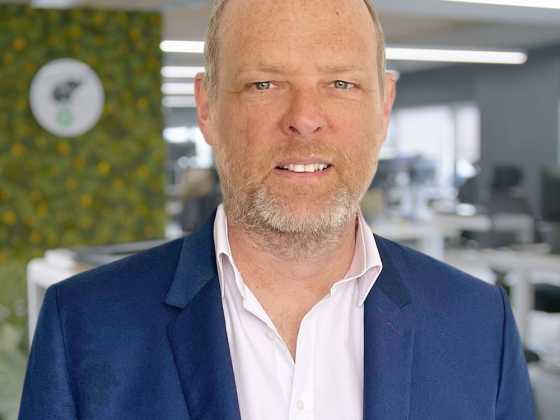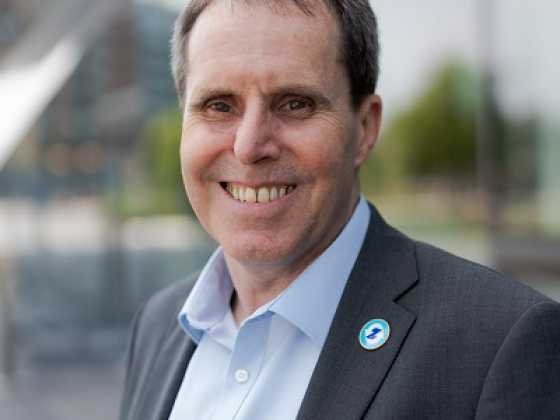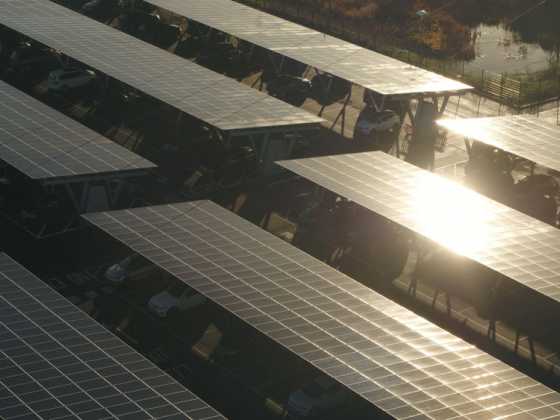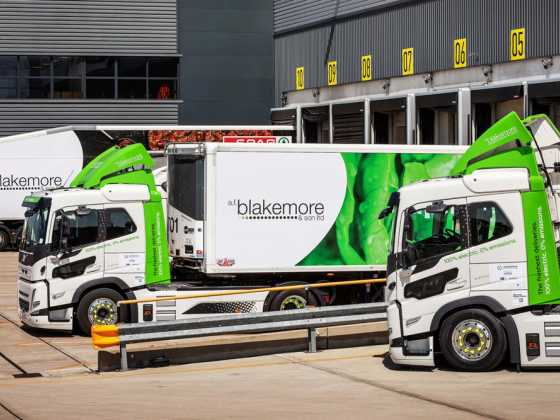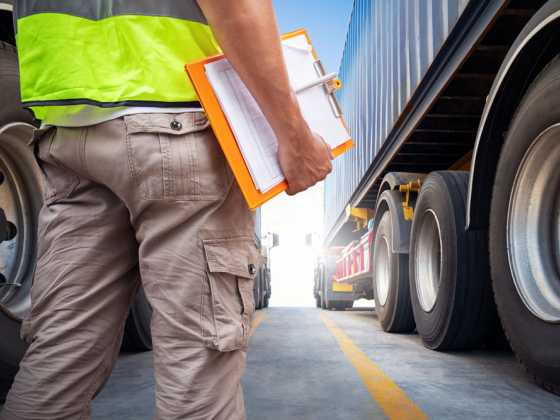FedEx: Aiming for carbon-neutral operations
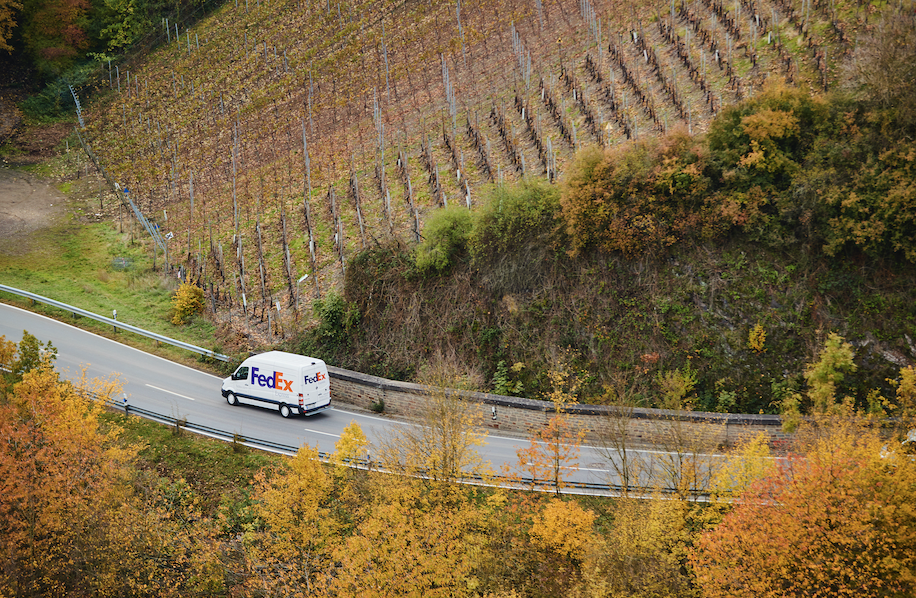
Electrification of FedEx's parcel pickup and delivery fleet is a key part of the company's goal to achieve carbon-neutral operations globally by 2040. Dave Canavan, chief operating officer at FedEx Express Europe, tells GreenFleet about what FedEx is doing in Europe to meet its carbon targets
In Europe, what is the target for electrifying FedEx's fleet?
The sustainability agenda in Europe is moving fast and there is a growing desire to make our cities less polluted, less congested, and to promote healthier and safer forms of mobility in order to tackle emissions. The electrification of our owned pick-up and delivery vehicle fleet will be critical to achieving our sustainability goals and to playing our part in this significant collective effort.
We have set a global target for 50 per cent of all new pick-up and delivery vehicles to be electric by 2025 and 100% of newly procured vehicles to be electric by 2030. Electrification of our owned parcel delivery fleet will be a major milestone on our journey to net zero. We already have a number of zero-emission electric delivery vehicles and e-bikes serving FedEx routes in London, Frankfurt, and Paris, and we are excited about expanding our sustainable fleet in the future.
How many electric vehicles do you currently have globally?
By the end of FY20, we had advanced our global fleet of alternative fuels vehicles, reaching a total of 4,091 vehicles on the roads, with our electric fleet alone amounting to 3,078 vehicles.
In terms of electrifying FedEx’s ground fleet, what barriers do you anticipate and how can they be overcome?
We have made great strides in reducing both ground and aircraft emissions, but two main challenges remain, and we have to continue working collaboratively across industry and government to address these.
One challenge is the availability of appropriate charging infrastructure to support the mass rollout of electric vehicles. Addressing this requires collaboration across both the private and public sectors, as well as significant investment. As governments emerge from the pandemic and look to ‘build back greener’, we are seeing more and more momentum in this space.
Another challenge is the historic movement of logistics infrastructure out of our cities. For decades, ‘logistics sprawl’ has been driven by land scarcity and the search for economies of scale, with warehouses moving further away from city centres. This might be counterproductive, as greater distances mean more vehicle miles on the road and higher emissions. The past year has proved the essential role of logistics, and we should use this opportunity to encourage stronger collaboration between those designing our future cities.
What is your charging infrastructure like and what are the future plans for it?
We are constantly analysing our operations, evaluating available infrastructure and solutions, to develop our roadmap to delivering in the zero emissions cities of the future.
We plan to overcome grid constraints by using a variety of charging infrastructure options, including multiple EV charging station options, energy storage, and clean power generation, using the options that best meet each site’s needs. We also expect to leverage smart charging and load management options to save on energy costs and avoid costly infrastructure upgrades.
Part of FedEx’s carbon neutral plans are to continue to invest in alternative fuels to reduce emissions. What alternative fuels are you using, aside from electric power?
Almost half of the emissions generated by road transport in Europe come from freight transportation, so we recognise there is room to make a big impact if we can adopt zero emission solutions as soon as possible. At the end of FY20, the FedEx global alternative vehicles fleet comprised of 4,091 vehicles using hybrid, electric, LNG, CNG, Propane and hydrogen fuel cell powered powertrains. Alongside the alternative fuels already in use in our fleet, electric and hydrogen promise to play a key part in driving down emissions in the short term.
To reduce the impact of our aviation fleet, we will continue to retire our older aircraft and replace them with the most environmentally friendly and fuel-efficient alternatives, while continuing to invest in sustainable aviation fuel (SAF). In 2015, we made a purchasing commitment to procure SAF from Red Rock Biofuels to indicate demand and help viable solutions for sustainable fuels to reach the market. In 2018, a Boeing 777F was loaned by FedEx Express to participate in a 6-month long Eco Demonstrator program. This became the first aircraft to fly with both engines using a 30% blend of SAF.
Another part of the plan is to offer carbon-neutral shipping offerings. Could you explain what this means?
Our carbon neutral shipping offering will aim to provide a fully sustainable supply chain from collection to transportation, fulfilment, and delivery. We will work to offer end-to-end sustainability solutions throughout our supply chain with carbon-neutral shipping offerings and sustainable packaging solutions.
What advice would you give to other companies looking to decarbonising their fleet?
Our advice to companies is to start planning for decarbonisation now and to establish key partnerships. In the field of city logistics, for example, we believe stronger collaboration between logistics providers and those planning and building our urban spaces is crucial to reaching our goals.
At FedEx, we are focussing not just on our own operations, but building the partnerships and alliances needed to address the climate crisis.
For example, we recently announced an exciting $100m investment in the Yale School of the Environment. This funding will establish the Yale Center for Natural Carbon Capture, which will undertake scientific research to accelerate solutions for natural carbon storage, with a primary focus on the aviation sector.
In Europe, FedEx Express has also developed a programme together with the Global Alliance of NGOs for Road Safety. Now in its third year, it will help European cities in Spain, Italy and Poland promote cycling – and in particular, the use of cargo bicycles - as a means of safer and more sustainable mobility for citizens.
Lastly, FedEx Express Europe, alongside Natuur & Milieu (Nature & Environment), announced a collaboration with the aim to pave the way for a more sustainable transport sector. The charitable funding from FedEx will enable Natuur & Milieu to release three sub projects aiming to realise sustainable solutions that drive down carbon emissions across road, logistics distribution facilities and aviation.
As an enterprise approaching its 50th year of operations, we are in a fortunate position of being able to invest in these ways. Whatever the level of investment, companies should focus their energy on building partnerships, learning from other thought leaders about the journey to net zero operations and applying that knowledge to transform their business.


